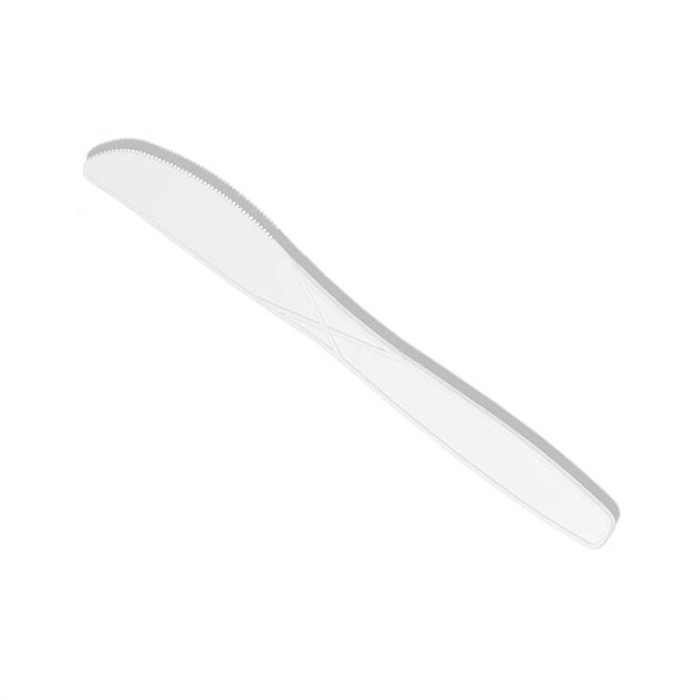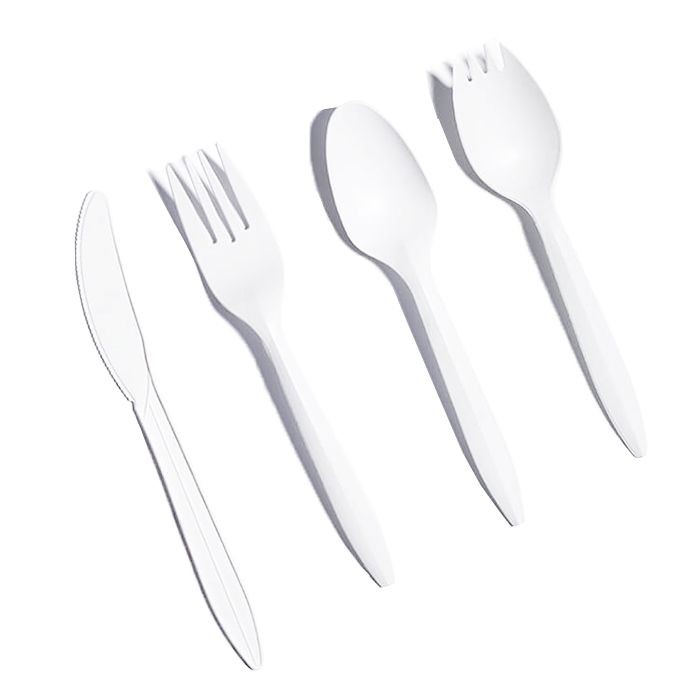What is the heat dissipation performance of the 7 inch PSM fork?
Oct 23, 2025
As a supplier of 7-inch PSM forks, I often receive inquiries from customers about various aspects of our products. One question that frequently comes up is about the heat dissipation performance of the 7-inch PSM fork. In this blog post, I will delve into this topic, exploring the factors that affect heat dissipation, the significance of good heat dissipation, and how our 7-inch PSM forks measure up in this regard.
Understanding Heat Dissipation in Forks
Heat dissipation refers to the process by which an object transfers heat to its surrounding environment. In the context of forks, especially those used in food service, heat dissipation is crucial for several reasons. When a fork comes into contact with hot food, it absorbs heat. If the fork cannot dissipate this heat efficiently, it can become uncomfortably hot for the user to hold. Additionally, excessive heat retention can potentially damage the fork's material over time, leading to reduced durability.
Several factors influence the heat dissipation performance of a fork. The material of the fork is perhaps the most significant factor. Different materials have different thermal conductivity properties, which determine how quickly they can transfer heat. For example, metals are generally good conductors of heat, meaning they can dissipate heat rapidly. On the other hand, plastics and other polymers tend to be poor conductors, resulting in slower heat dissipation.
The design of the fork also plays a role in heat dissipation. Forks with a larger surface area in contact with the air can dissipate heat more effectively. This is because a larger surface area provides more opportunities for heat to transfer from the fork to the surrounding air. Additionally, the shape of the fork can affect air circulation around it, which in turn impacts heat dissipation.
The Material of 7-inch PSM Forks
Our 7-inch PSM forks are made from plant starch, a renewable and environmentally friendly material. Plant starch is derived from natural sources such as corn, potatoes, or wheat, and it offers several advantages over traditional plastic materials. One of the key benefits of plant starch is its relatively low thermal conductivity compared to metals. While this may seem like a disadvantage in terms of heat dissipation at first glance, it actually has some positive implications for the user experience.
Because plant starch has a lower thermal conductivity, it does not absorb heat as quickly as metal forks. This means that when you use our 7-inch PSM forks to pick up hot food, you are less likely to experience the discomfort of a burning-hot fork handle. The slower heat absorption also helps to protect the fork from damage caused by excessive heat, ensuring a longer lifespan for the product.
However, it is important to note that the lower thermal conductivity of plant starch also means that the forks will dissipate heat more slowly than metal forks. This is not necessarily a bad thing, as it allows the fork to retain a more comfortable temperature for a longer period of time. In fact, many users prefer the slightly warmer feel of our plant starch forks compared to the coldness of metal forks when handling hot food.
Design Features for Heat Dissipation
In addition to the material, we have also incorporated several design features into our 7-inch PSM forks to enhance their heat dissipation performance. One of these features is the shape of the fork handle. Our forks have a slender and ergonomic handle design that maximizes the surface area in contact with the air. This allows heat to transfer more efficiently from the fork to the surrounding environment, helping to keep the handle at a comfortable temperature.
Another design feature is the texture of the fork. The surface of our 7-inch PSM forks is slightly textured, which not only provides a better grip but also increases the surface area available for heat dissipation. The texture creates small air pockets around the fork, which improve air circulation and enhance the heat transfer process.
Significance of Good Heat Dissipation
Good heat dissipation is not just about comfort; it also has important implications for the quality and durability of the forks. When a fork can dissipate heat effectively, it is less likely to experience thermal stress, which can cause the material to warp or crack over time. This means that our 7-inch PSM forks are more resistant to damage and can maintain their shape and functionality for a longer period of time.
In addition, good heat dissipation can also contribute to a better dining experience. When you use a fork that does not become too hot to hold, you can focus on enjoying your food without any distractions. This is especially important in a professional food service setting, where customers expect a high level of comfort and quality.
Comparing with Other Products
To give you a better understanding of how our 7-inch PSM forks perform in terms of heat dissipation, let's compare them with some other types of forks commonly used in the market.


Metal Forks: As mentioned earlier, metal forks have high thermal conductivity, which means they can dissipate heat very quickly. However, this also means that they absorb heat rapidly, and you may find them uncomfortably hot to hold when handling hot food. In addition, metal forks are more prone to corrosion and rust, which can affect their appearance and durability.
Traditional Plastic Forks: Traditional plastic forks are poor conductors of heat, so they do not dissipate heat well. This can result in a fork that feels hot and sticky in your hand, especially when used with hot food. Plastic forks are also made from non-renewable resources and are not biodegradable, which makes them less environmentally friendly.
In contrast, our 7-inch PSM forks offer a balanced combination of heat dissipation performance and user comfort. They do not become too hot to hold, yet they can still dissipate heat effectively enough to prevent thermal damage. Moreover, they are made from a renewable and biodegradable material, making them a more sustainable choice for the environment.
Applications and Use Cases
Our 7-inch PSM forks are suitable for a wide range of applications, including restaurants, cafes, catering services, and home use. They are particularly well-suited for serving hot foods such as pasta, stir-fries, and soups, where heat dissipation is an important consideration.
In a restaurant setting, our forks can enhance the dining experience for customers by providing a comfortable and reliable utensil. The ergonomic design and good heat dissipation performance ensure that customers can enjoy their meals without any discomfort. For catering services, our 7-inch PSM forks are a practical and eco-friendly choice, as they can be easily disposed of after use without causing harm to the environment.
At home, our forks are a great alternative to traditional plastic or metal forks. They are safe to use with hot food and can be composted after use, reducing your environmental footprint. Whether you are hosting a dinner party or simply having a meal with your family, our 7-inch PSM forks are a convenient and sustainable option.
Conclusion
In conclusion, the heat dissipation performance of our 7-inch PSM forks is a result of the combination of the plant starch material and the thoughtful design features. While they may not dissipate heat as quickly as metal forks, they offer a more comfortable and sustainable alternative. The slower heat absorption and dissipation ensure that the forks do not become too hot to hold, while the design features help to enhance the overall heat transfer process.
If you are interested in learning more about our 7-inch PSM forks or other Plant Starch Forks, we invite you to explore our website. We also offer a wide range of Environmentally Friendly Disposable Utensils, including Plant Starch Knife. If you have any questions or would like to discuss a potential purchase, please feel free to contact us. We look forward to the opportunity to work with you and provide you with high-quality, sustainable cutlery solutions.
References
- "Thermal Conductivity of Materials." Engineering ToolBox.
- "Properties of Plant Starch." Journal of Applied Polymer Science.
- "Design Considerations for Heat Dissipation in Utensils." International Journal of Food Science and Technology.
